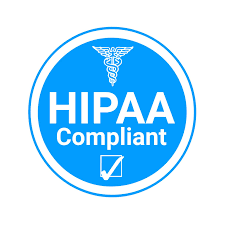Nevada Limb and Brace (Henderson, NV) — From Audit Anxiety to HIPAA Confidence
“We knew an audit could be coming. We also knew we weren’t ready.” That’s how the practice manager at Nevada Limb and Brace described the moment they called CMIT Solutions of Las Vegas. What started as audit anxiety turned into a structured journey to protect patient data, harden systems, and document compliance—without disrupting patient care.
Client
Nevada Limb and Brace, a specialty clinic serving patients across Henderson and the Las Vegas valley.
Location
Henderson, Nevada
Industry
Healthcare (Specialty Clinic)
Engagement Goal
Build a repeatable, audit-ready HIPAA program across people, process, and technology—while reducing risk from phishing, ransomware, and data loss.
The Moment They Reached Out
An internal readiness check surfaced what leadership feared: policies were outdated or incomplete, backups lived too close to production, and some staff were using personal devices to access sensitive information. With growing concern about cyberattacks in healthcare and the potential for an external compliance audit, Nevada Limb and Brace asked CMIT Solutions of Las Vegas to step in.
Starting Point: Key Challenges
- Documentation gaps — HIPAA policies existed but were fragmented, out of date, or missing key procedures.
- Backup proximity — Local backups sat on the same network, increasing ransomware exposure.
- Endpoint variability — Mixed devices and configurations; not all were encrypted or centrally monitored.
- Access creep — Some user permissions were broader than needed for their roles.
- Human risk — Staff were targets for phishing, vishing, and MFA fatigue attacks.
What We Deployed (Tooling & Approach)
We aligned people, process, and technology—then documented every control so it could stand up in an audit.
Compliance Orchestration
- Kaseya (white-label compliance tools) — central control matrix, policy mapping, evidence tracking, reminders for reviews and renewals.
- Autotask (PSA) — ticketed all remediation work with timestamps and change history for audit evidence.
Security Operations
- Barracuda XDR — 24×7 monitoring, alerting, and investigation support.
- SentinelOne EDR — behavioral detection and automated response on endpoints and servers.
Data Protection
- Datto Backup & SaaS Protection — image-based local + cloud backups, off-site retention, and immutable storage to resist ransomware.
- Quarterly restore drills — documented screenshots & logs as proof of recovery time (RTO) and recovery point (RPO).
Identity & Access
- MFA everywhere — prioritized admin, EHR, remote access, and email.
- Least-privilege & role-based access — trimmed permissions to match actual job duties.
Policy & Training
- New and updated policies for access control, encryption, incident response, disaster recovery, media disposal, and vendor/BAA management.
- Live training sessions on phishing/vishing, secure workflows, and HIPAA do’s & don’ts with acknowledgments stored as evidence.
Our 5-Phase Method (Built for Audits)
- Assess & Prioritize — We ran a HIPAA-aligned risk analysis, built a control matrix, and prioritized “must-fix” gaps.
- Design the Fix — Target architecture for backups (3-2-1-1-0), endpoint standards, segmentation, and policy set.
- Implement & Harden — EDR + XDR rollout, immutable backups, MFA, permission cleanup, patch baselines.
- Document & Train — Finalized policies, recorded test restores, logged change history, trained staff, and collected acknowledgments.
- Mock Audit & Tune — Dry-run against a real audit request list; closed final gaps and packaged evidence.
Incident Readiness: If Ransomware Strikes
Before this engagement, the clinic’s backups shared too much DNA with production. We moved to a modern pattern:
- 3-2-1-1-0 backups (3 copies, 2 media, 1 off-site, 1 immutable, 0 untested)
- Immutable storage so snapshots can’t be altered—even by a compromised admin
- Quarterly restore drills to verify RTO/RPO and reveal bottlenecks
We then ran a tabletop incident exercise (what if the EHR is encrypted at 7:30am?) and used that to tighten the IR runbook, call tree, and executive communications.
Results That Matter to a Clinic
- Audit-ready HIPAA documentation with a live control matrix and evidence library.
- Ransomware-resilient backups with verified restore points and immutable retention.
- Lower human risk — staff trained on phishing and MFA fatigue; clear verification steps for unusual requests.
- Operational confidence — leadership knows where to find the policy, the proof, and the plan.
Timeline & Milestones
| Phase | Duration | Highlights |
|---|---|---|
| Assessment & Plan | Weeks 1–2 | Control matrix; gap list; risk priority. |
| Implementation | Weeks 3–6 | EDR + XDR; MFA; backup redesign; permission cleanup. |
| Documentation & Drills | Weeks 7–9 | Policies finalized; restore tests; staff training acknowledgments. |
| Mock Audit & Evidence Pack | Week 10 | Dry-run, gap closure, indexed evidence package. |
What This Means for Other Healthcare Practices
Even well-run clinics can drift from best practices because patient care comes first. The fix isn’t heroics—it’s a rhythm:
- Keep a single source of truth for controls and evidence.
- Teach teams to verify unusual requests through a second channel.
- Make backups your leverage: off-site, immutable, and tested.
- Document as you go. If it’s not written down, it didn’t happen.
Related Services
Request a Free HIPAA IT Review
Protect your patients, secure your systems, and pass audits with confidence. CMIT Solutions of Las Vegas provides HIPAA-aligned IT, cybersecurity, and data protection for clinics across Southern Nevada.
Stack used for this engagement: Kaseya (white-label compliance tools), Barracuda XDR, SentinelOne EDR, Datto Backup & SaaS Protection, Autotask (PSA).

